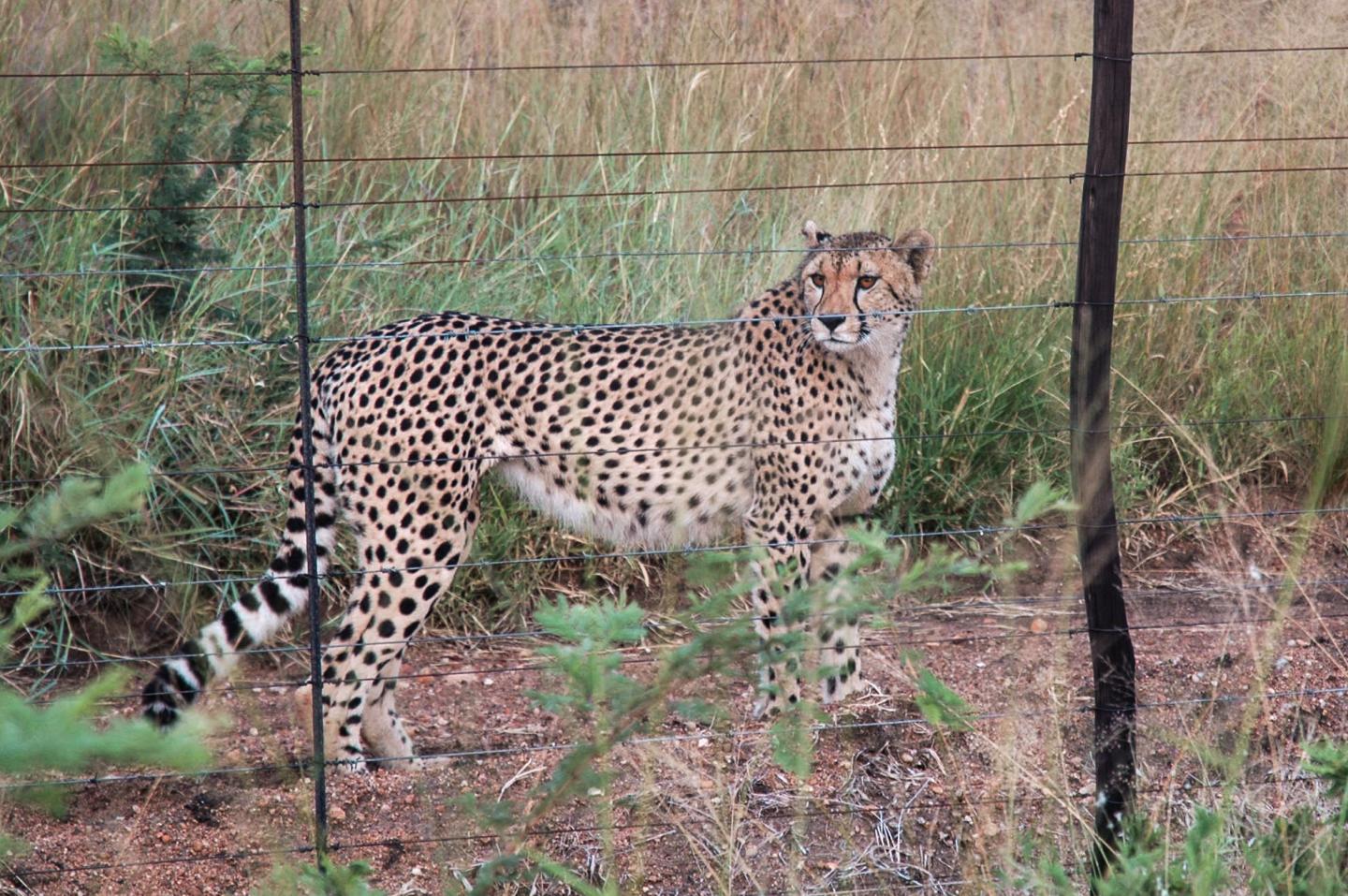Wild cheetah populations have declined precipitously in the past century: from an estimated 100,000 in 1900 to only around 10,000 today. A new study from researchers in Europe, South Africa and at North Carolina State University suggests that the energy cheetahs spend looking for prey, rather than their high-speed hunting tactics or food stolen by other predators, may be to blame for their dwindling numbers.
Cheetahs are high-speed hunters, but are not the strongest predators in their ecosystems. Often, hyenas and lions will take advantage of this, stealing the cheetah's hard-won meal. Researchers had surmised that regular prey loss to theft might be weakening the animals, by forcing them to expend energy on chasing and taking down prey that they couldn't replace. An international team of biologists decided to look at whether or not this was the case.
The researchers captured cheetahs from two different South African reserves, injected them with a special type of isotope-laden water, and put radio collars on the animals. By following the cheetahs and analyzing the amount of isotope in their waste samples, they were able to calculate how much energy a cheetah used to catch prey, and thus, how damaging prey theft would be.
The results were surprising. The cheetah's energy expenditure during an actual hunt was relatively small, even taking into account their bursts of speed. The biggest driver of energy expenditure for cheetahs turned out to be the distance they had to walk in order to find their prey.

This is a cheetah on the Karongwe game reserve.
(Photo Credit: Johnny Wilson)
"It seems that the cheetah is able to cope with larger predators and the occasional loss of food without too much difficulty," says Mike Scantlebury, biologist at Queen's University in Belfast, Northern Ireland and lead author of the paper describing the research. "For prey theft to be a factor, cheetahs would have to have their meal stolen over 50 percent of the time, which is not the case with the animals we studied."
Instead, the researchers link the cheetah's decline to factors – including habitat loss and human involvement – that force cheetahs to travel farther in search of prey.
According to Johnny Wilson, who worked on the project while completing his Ph.D. at NC State, "We too often blame lions and hyenas for decimating cheetah populations when in fact it is likely to be us who drive their declines. Anything that we do to make them move farther to find prey – like depleting their prey stocks or erecting fences or barriers – makes life a lot harder for a cheetah."
The researchers' work appears in Science.
Source: North Carolina State University